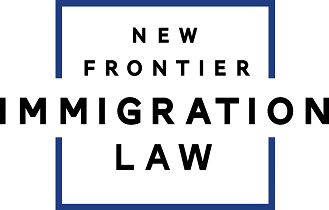If you are a U.S. citizen or lawful permanent resident considering sponsoring a non-U.S. resident for a Green Card, you need to be aware of the 90-day rule.
What is the 90-day rule, and why is it important you know how it works?
The purpose of the 90-day rule
The 90-day rule is a guideline used by USCIS to determine whether someone who enters the U.S. on a nonimmigrant visa has violated the nonimmigrant intent requirement, making them ineligible for an adjustment of status to permanent residency. It’s also known as the “30/60 day rule.”
How it works
If someone enters the country on a nonimmigrant visa, such as a tourist visa, and then marries a U.S. citizen or a lawful permanent resident, they may be able to apply for an adjustment of status to permanent residency while they are in the United States.
However, if the applicant engaged in certain activities within the first 90 days of their arrival to the U.S., the USCIS may presume the applicant entered the United States with the intent to immigrate – although they were admitted to the country on a non-immigrant visa. On a non-immigrant visa, the immigrant must have the intent when entering the country to return to their home country. This is called “non-immigrant intent.” A violation of nonimmigrant intent may require an additional waiver or the denial of the application.
The following activities will be deemed suspicious if the applicant engages in them within the first 90 days of their arrival:
getting unauthorized employment
enrolling in a course of study without authorization
getting married and immediately applying for an adjustment of status.
The 30/60 guideline
Within the 90-day rule, USCIS looks at the first 30 days with extra scrutiny. The following 30 days are given more consideration. This approach results in a “30/60-day rule” USCIS uses to determine whether a foreign national has violated its nonimmigrant status.
If the person engages in any of the activities described in the previous section within 30 days of arrival, USCIS presumes that they entered the United States with the sole intent to immigrate.
If the person engages in any of these activities between 30 and 60 days after arrival, USCIS may consider this as evidence of a preconceived intent to immigrate, but it will also take other factors into consideration.
If the person engages in these activities after 60 days from the date of arrival, it is generally presumed that they did not intend to immigrate when they entered the United States.
It is important to note that the 90-day rule is not a fixed rule. USCIS assesses all the circumstances when determining whether a foreign national has violated their nonimmigrant status. If an applicant can demonstrate that their activities were consistent with the purpose of their visa, USCIS may find they did not violate their status.
Why is the 90-day rule important?
The 90-day rule is important because it determines whether a foreign national is eligible to apply for an adjustment of status and to eventually become a legal resident. If USCIS denies the application due to a violation of nonimmigrant status, the applicant would face deportation.
Because of the seriousness of the consequences for the applicant, if you are planning to sponsor a loved one, inform them about this rule and caution them to avoid any activities that might be considered inconsistent with the purpose of their application. The best course of action is for them to wait at least 60 days after their arrival date before applying for jobs or enrolling in study courses.
If you have any questions or concerns in regard to this rule, contact us at New Frontier Immigration Law. We will provide guidance and assistance through the process to ensure you are taking the necessary steps toward a successful outcome.
Call us today at (480) 680-8380 for more information, and follow us on social media to keep yourself updated on more immigration news!
Call or text (623) 742-5400 or complete a Free Case Evaluation form




